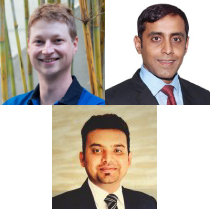
MIPS Special Seminar: Jubilant Biosys: Drug discovery and contract research services, from target discovery to candidate selection
Thomas Haywood, PhD
Head of International Radiochemistry Collaborations
Stanford University
Saurabh Kapure, MBA
Vice President, Business Development (USA & APAC)
Jubilant Biosys Limited
Jay Sheth, MBA
Manager Business Development, Drug Discovery Services, and CDMO
Jubilant Biosys Limited
LOCATION: Zoom
Meeting URL: https://stanford.zoom.us/j/98108346345
Dial: +1 650 724 9799 or +1 833 302 1536
Meeting ID: 981 0834 6345
Passcode: 397741
9:00-9:15 AM, PT – Thomas Haywood – Stanford Radiology projects
9:40-10:00 AM, PT – Moderated by Jason Thanh Lee – Discussion
ABOUT
Jubilant Biosys, an integrated contract research organization in India with business offices in Asia and North America, is a leading collaborator for biotechnology and pharmaceutical companies, with in-depth expertise in discovery informatics, medicinal chemistry, structural biology, and in vitro pharmacology services. Jubilant Biosys provides comprehensive drug discovery services and contract research services, from target discovery to candidate selection and with flexible business models (FFS, FTE and risk shared). This seminar will showcase case studies from recent Stanford projects and a discussion of future opportunities.
Sponsored by: Molecular Imaging Program at Stanford, Department of Radiology
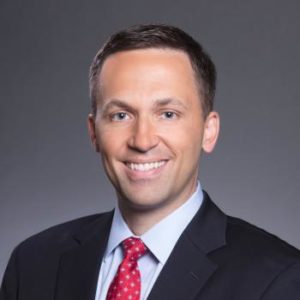
MIPS Seminar Series: Image-guided focal therapy for prostate cancer
Geoffrey Sonn, MD
Assistant Professor of Urology and, by courtesy, of Radiology (Molecular Imaging Program at Stanford)
Stanford University Medical Center
Location: Zoom
Webinar URL: https://stanford.zoom.us/s/96126703618
Dial: +1 650 724 9799 or +1 833 302 1536
Webinar ID: 961 2670 3618
Passcode: 186059
12:00pm – 12:45pm Seminar & Discussion
RSVP Here
ABSTRACT
In recent years, prostate cancer treatment has increasingly focused on selecting patients who are most likely to benefit and reducing harms from treatment. This has been seen both in adoption of active surveillance for men with low-risk prostate cancer and emergence of image-guided focal ablative therapy. While focal therapy causes fewer sexual and urinary side effects than conventional prostate cancer treatments, many questions remain about proper patient selection, treatment planning, and follow up care.
Improvements in prostate MRI performance and interpretation have paved the way for adoption of focal therapy. However, clinical challenges remain in prostate cancer imaging. This talk will describe prostate cancer focal therapy, discuss patient selection, and highlight the research efforts of my group to improve MRI interpretation to guide biopsy and improve focal therapy performance.
ABOUT
Geoffrey Sonn, MD is a urologic oncologist who specializes in treating patients with prostate and kidney cancer. He has a particular interest in cancer imaging, MRI-Ultrasound fusion targeted prostate biopsy, prostate cancer focal therapy, and robotic surgery for prostate and kidney cancer. He is the principal investigator of the first clinical trial in Northern California to use MRI-guided focused ultrasound to treat prostate cancer. The goal of this trial is to treat prostate cancer with fewer side effects than surgery or radiation.
Dr. Sonn was born in Washington State and lived there until leaving for college at Georgetown. After graduating magna cum laude at Georgetown he returned to the West Coast for medical school at UCLA. Following medical school, Dr. Sonn completed a 6-year urology residency at Stanford where he developed particular interests in the clinical care of patients with urologic cancers and research in cancer imaging. Dr. Sonn completed a 2-year urologic oncology fellowship at UCLA. Since completing his fellowship, Dr. Sonn has been at Stanford as an assistant professor in urology. Dr. Sonn’s research is devoted to developing new cancer imaging techniques, applying artificial intelligence to find cancers on medical images, and applying new methods to treat prostate cancer with fewer side effects.
Hosted by: Katherine Ferrara, PhD
Sponsored by: Molecular Imaging Program at Stanford & the Department of Radiology

Molecular Imaging in Neuroscience – MIPS Mini-Retreat
Hosted by: Dr. Michelle L. James, PhD
Sponsored by: Department of Radiology, Molecular Imaging Program at Stanford
The MIPS Mini-retreat series brings together members of the MIPS and greater School of Medicine community to discuss current opportunities for research and collaborations. During each mini-retreat we will discuss a different topic and we invite all those interested to attend. The mini-retreats are roughly two hours in length with ample time for discussion throughout. We hope you can join us and spark new collaborations!
Zoom Webinar Information
Webinar URL: https://stanford.zoom.us/j/92903233643
Dial: US: +1 650 724 9799 or +1 833 302 1536 (Toll Free)
Webinar ID: 929 0323 3643
Passcode: 146018
Tentative Agenda (all times are in PST)
8:00-8:05 AM – Opening Remarks – Michelle James, PhD
8:05-8:55 AM – Overview and Imaging-based Collaboration: Department of Neurology, Neurosurgery, Pathology, Psychiatry, and Nuclear Medicine (Frank M. Longo, MD, PhD, Michael Lim, MD, Thomas Montine, MD, PhD, Victor G. Carrión, MD, and Guido Davidzon, MD)
8:55-9:20 AM – Faculty Introductions: All interested MIPS faculty on the call give a 2-minute introduction including their interest in collaborating with Neurology, Pathology, Neurosurgery, and/or Psychiatry and Behavioral Sciences departments.
9:20-9:40 AM – Recent center proposals and possible mechanisms: UDALL Collaboration – Michelle James, PhD and Kathleen Poston, MD, MS
9:40-10:00 AM – Discussion – Moderated by: Michelle James, PhD and Katherine Ferrara, PhD
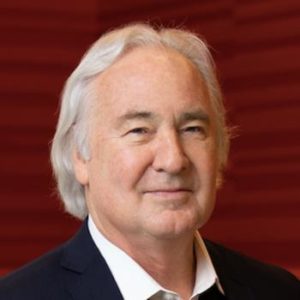
MIPS Seminar Series: Predicting and Preventing Fetal and Neonatal Pathology: Looking Back and Looking Forward
David K. Stevenson, MD
The Harold K. Faber Professor of Pediatrics, Senior Associate Dean, Maternal and Child Health and Professor, by courtesy, of Obstetrics and Gynecology
Lucile Packard Children’s Hospital
Zoom Webinar Details
Webinar URL: https://stanford.zoom.us/s/94584828060
Dial: +1 650 724 9799 or +1 833 302 1536
Webinar ID: 945 8482 8060
Passcode: 481874
12:00pm – 12:45pm Seminar & Discussion
RSVP Here
ABSTRACT
The importance of minimally invasive technologies for interrogating the fetus and newborn, as well as of knowing where a biologic system is headed, not just where it has been, when trying to predict and prevent acquired diseases, will be discussed. Examples of such technologies, such as trace gas analysis and optical reporting of biologic phenomena, and their application to model systems and the human newborn will be presented. The role of advanced computational approaches for the integration and interpretation of large amounts of data derived from these new measurement tools will be emphasized.
ABOUT
Dr. David K. Stevenson is the Harold K. Faber Professor of Pediatrics and has made many impactful contributions to the field of neonatology and pediatrics, including his seminal studies on neonatal jaundice, bilirubin production and heme oxygenase biology. As a neonatologist, his research has focused primarily on neonatal jaundice and more recently on the causes of preterm birth and its prevention. He has held numerous leadership roles at Stanford University School of Medicine, including Vice Dean and Senior Associate Dean for Academic Affairs. He is currently the Senior Associate Dean for Maternal & Child Health, the Co-Director of the Stanford Maternal & Child Health Research Institute, and the Principal Investigator for the March of Dimes Prematurity Research Center at Stanford University. Dr. Stevenson has received many awards, including the Virginia Apgar Award, which is the highest award in Perinatal Pediatrics, the Joseph W. St. Geme, Jr. Leadership Award from the Federation of Pediatric Organizations, the Jonas Salk Award for Leadership in Prematurity Prevention from the March of Dimes Foundation, and the John Howland Medal and Award, the highest award in academic pediatrics. He has served as the President of the American Pediatric Society. In recognition of his achievements, Dr. Stevenson is a member of the National Academy of Medicine.
Hosted by: Katherine Ferrara, PhD
Sponsored by: Molecular Imaging Program at Stanford & the Department of Radiology
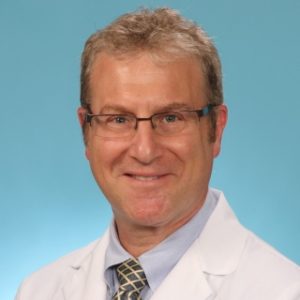
MIPS Seminar Series: Title TBA
Steven Paul Poplack, MD
Professor of Radiology (Breast Imaging)
Stanford University Medical Center
Location: Coming soon!
12:00pm – 12:45pm Seminar & Discussion
RSVP: Coming soon!
ABSTRACT
Coming soon!
ABOUT
Coming soon!
Hosted by: Katherine Ferrara, PhD
Sponsored by: Molecular Imaging Program at Stanford & the Department of Radiology
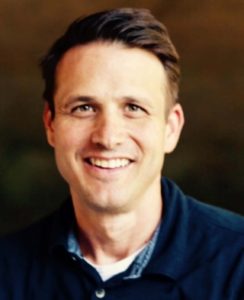
MIPS Seminar Series: Title TBA
Matthew Bogyo, PhD
Professor of Pathology and of Microbiology and Immunology and, by courtesy, of Chemical and Systems Biology
Stanford University
Location: Coming soon!
12:00pm – 12:45pm Seminar & Discussion
RSVP: Coming soon!
ABSTRACT
Coming soon!
ABOUT
Dr. Bogyo received a B.Sc. degree in Chemistry from Bates College in 1993 and a Ph.D. in Biochemistry from the Massachusetts Institute of Technology in 1997. After completion of his degree he was appointed as a Faculty Fellow in the Department of Biochemistry and Biophysics at the University of California, San Francisco. Dr. Bogyo served as the Head of Chemical Proteomics at Celera Genomics from 2001 to 2003 while maintaining an Adjunct Faculty appointment at UCSF. In the Summer of 2003 Dr. Bogyo joined the Department of Pathology at Stanford Medical School and was appointed as a faculty member in the Department of Microbiology and Immunology in 2004. His interests are focused on the use of chemistry to study the role of proteases in human disease. In particular his laboratory is currently working on understanding the role of cysteine proteases in tumorgenesis and also in the life cycle of human parasites and bacterial pathogens. Dr. Bogyo currently serves on the Editorial Board of Biochemical Journal, Cell Chemical Biology, Molecular and Cellular Proteomics and is an Academic Editor at PLoS One. Dr. Bogyo is a consultant for several biotechnology and pharmaceutical companies in the Bay Area and is a founder and board member of Akrotome Imaging and Facile Therapeutics.
Hosted by: Katherine Ferrara, PhD
Sponsored by: Molecular Imaging Program at Stanford & the Department of Radiology